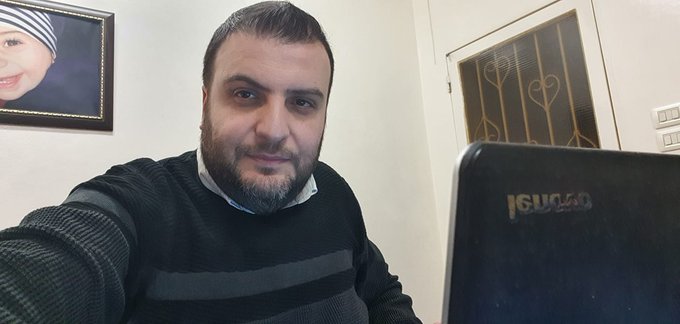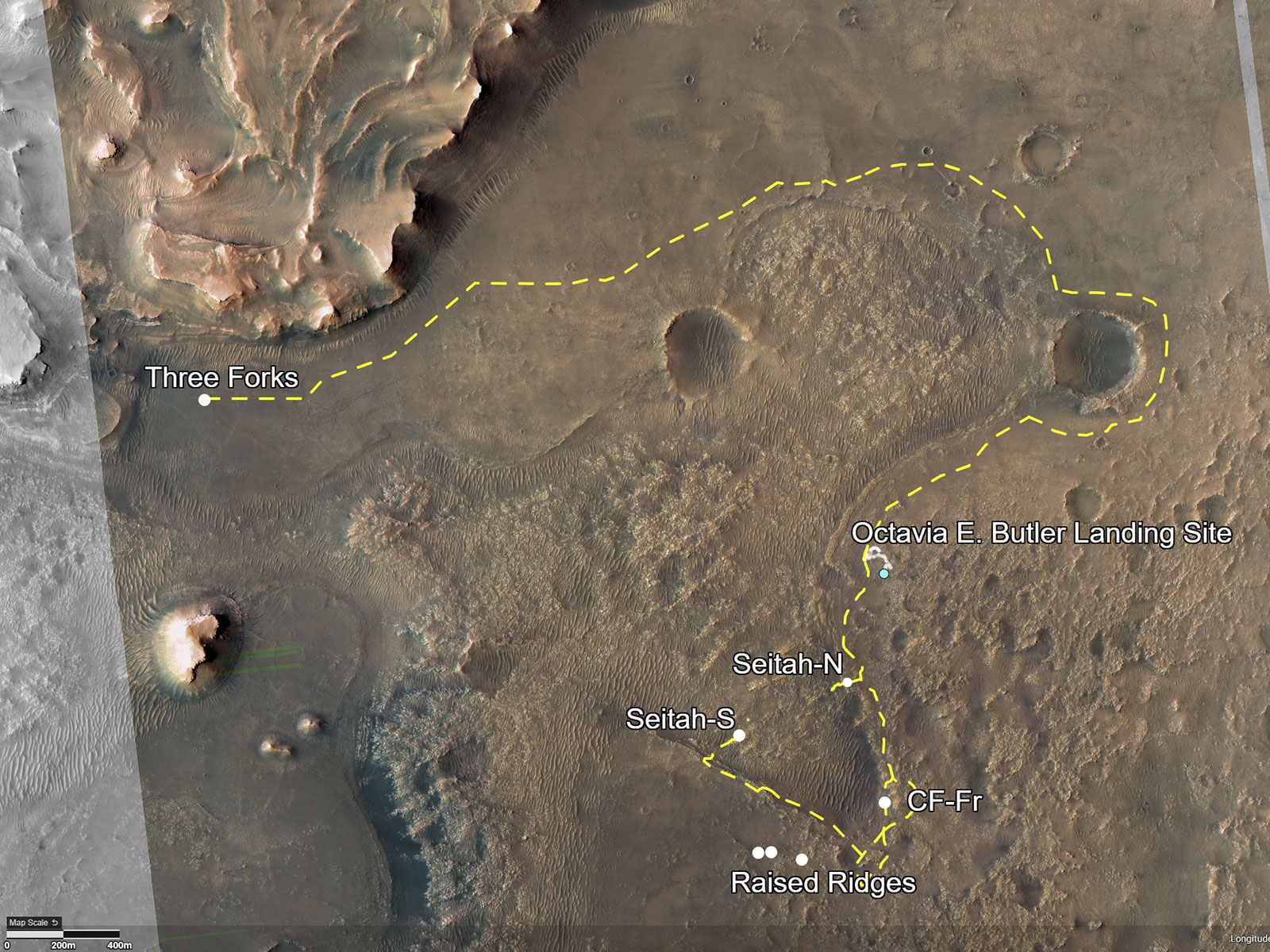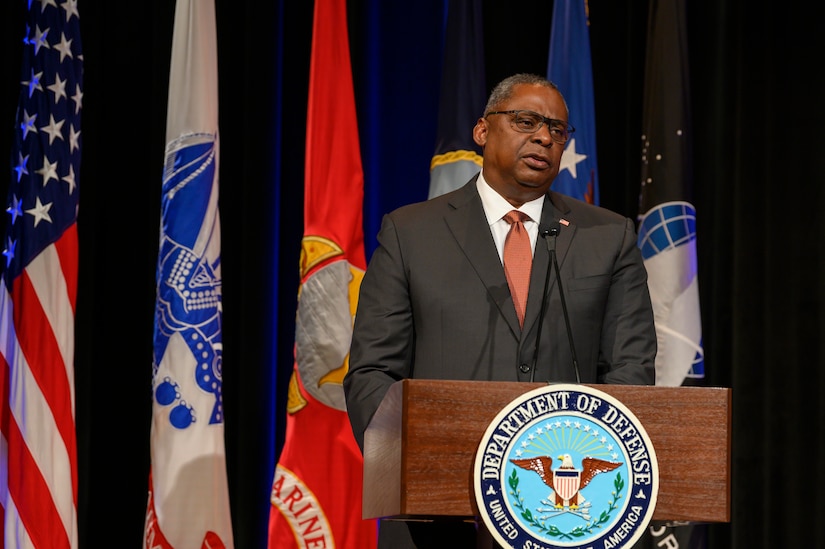I consider the story I'm about to highlight to be science. I hope you will as well. And it's a very important science story right now. Here's a text story from Rob Stein (NPR):
As the pandemic calms in the U.S., a growing number of states have started scaling back how often they update their dashboards tracking what's happening with the virus.
The moves are sparking alarm among many public health experts.
"One
of the most troubling trends recently has been that states are making
the decision to either slow or wind down their reporting efforts," says Beth Blauer, who helps run the Coronavirus Resource Center at Johns Hopkins University, a leading source of information about the pandemic.
"I
think it's absolutely appropriate for us to celebrate the progress
we've made, but we still are very much navigating a pandemic. We haven't
gotten to the point where we can stake victory," Blauer says.
You can use the same link to hear the story.
If we're not accurately keeping numbers, how are we supposed to know when the numbers are dropping and whether the vaccines are doing any good? We've seen mutations of the strain already. A mutation could knock out any effects of the vaccine. Why are states getting away with this? The federal government needs to step in and insist that numbers are reported accurately and timely.
"Iraq snapshot" (THE COMMON ILLS):
Friday, June 11, 2021. The Kurds, the PKK, Turkey, we walk through a lot of history
"The population of Afrin was once at least 96 % Kurdish. Following the Turkish occupation, most of them were displaced, & the proportion of the Kurdish population fell to around 25 %. ". If this isn't genocide, what is it then ?!!!!
"In south Kurdistan, they have established tens of military and intelligence bases and outposts to be used against the interests of our people," Elyana Elyan remarked this week regarding Turkey's illegal actions in the semi-autonomous Kurdistan Region of Iraq.
The Kurdish People's Assembly Tweets:
The Turkish military is attempting genocide against Kurds in South Kurdistan, targeting civilians and a large refugee camp. Ask your MP to sign an Early Day Motion condemning Turkey’s actions, and to speak up in favour of an arms embargo on Turkey:
What is going on? Insisting that they must defend themselves from the PKK, the government of Turkey is violating international law by sending troops into Iraq on raids and other missions and bombing the Kurdistan Region with war planes and drones. PKK? The what? The PKK is one of many Kurdish groups which supports and fights for a Kurdish homeland. Aaron Hess (International Socialist Review) described them in 2008, "The PKK emerged in 1984 as a major force in response to Turkey's oppression of its Kurdish population. Since the late 1970s, Turkey has waged a relentless war of attrition that has killed tens of thousands of Kurds and driven millions from their homes. The Kurds are the world's largest stateless population -- whose main population concentration straddles Turkey, Iraq, Iran, and Syria -- and have been the victims of imperialist wars and manipulation since the colonial period. While Turkey has granted limited rights to the Kurds in recent years in order to accommodate the European Union, which it seeks to join, even these are now at risk." The Kurdistan Regional Government in Iraq has been a concern to Turkey because they fear that if it ever moves from semi-autonomous to fully independent -- such as if Iraq was to break up into three regions -- then that would encourage the Kurdish population in Turkey. For that reason, Turkey is overly interested in all things Iraq. So much so that they signed an agreement with the US government in 2007 to share intelligence which the Turkish military has been using when launching bomb raids. However, this has not prevented the loss of civilian life in northern Iraq. Aaron Hess noted, "The Turkish establishment sees growing Kurdish power in Iraq as one step down the road to a mass separatist movement of Kurds within Turkey itself, fighting to unify a greater Kurdistan. In late October 2007, Turkey's daily newspaper Hurriyet accused the prime minister of the KRG, Massoud Barzani, of turning the 'Kurdish dream' into a 'Turkish nightmare'."
While Turkey pretends the problems started with the emergence of the PKK, they are lying. The PKK is not an initiating incident. It is a response to Turkey's long persecution of the Kurds -- perscuetion of the Kurds in Turkey and elsewhere.
Sirwan Renas (Washington Kurdish Institute) offers his take:
The foundations of Kurdish nationalism in contemporary history can be traced back to the historical transition from pre-modern empire political system to the modern state-building order in the Middle East. In regard to Islamism, what makes Kurdish nationalism different from its rival nationalisms is the contemporary historical context through which it emerged.
The Arab, Turkish, and Persian/Iranian nationalisms are state nationalisms that were constructed in opposition to Western colonialism — namely, British and France — at the beginning of the twentieth century and the domination of the United State in the aftermath of World War II. In contrast, Kurdish nationalism is a stateless nationalism aimed at the creation of the state of Kurdistan, and, thus, it emerged in opposition to the domination of Turkish, Iranian, Iraqi, and Syrian states — not the domination of Western powers. While for Turks, Arabs, and Persians, Western powers were seen as interventionists and occupiers, for Kurds the Turkish, Iranian, Iraqi, and Syrian states were perceived as occupiers. Even though Britain and France played a major role in dividing Kurdistan, for Kurds, it was their occupying authoritarian states that suppressed almost every Kurdish liberation movement throughout the twentieth century— a brutal suppression that led to all kinds of violations of human rights, from denying their fundamental rights to practice their language and culture and the possession of their homeland to mass killings, chemical bombings, ethnic cleansings, and genocides. The fact that the Kurdish national rights have been violated by the occupying states (not Western colonialists) made a significant difference in how Kurds perceive Islamism.
Kurds do not have any state of their own to identify themselves with, nor do they identify themselves with any of the pre-modern Islamic empires or with any of the modern occupying states. That is not to say that Kurds have played no active role in the Islamic empires. Saladin Ayyubi, the founder of the Ayyubid dynasty, for example, led the Muslim military campaign against the Crusaders in the Levant. However, Kurds do not identify themselves with the Ayyubid dynasty and it has not become a basis for Kurdish nationalism. On the contrary, Turks identify themselves with the Ottoman Empire, Persians with the Safavid Empire, and Arabs with many Islamic dynasties since the birth of Islam.
The transitional period from pre-modern empires to modern states in the Middle East is a crucial moment that helps us to understand how Kurdish nationalism and Islamism were affected by this historical context. It is widely believed that nationalism as a political ideology is a modern phenomenon.
Zooming in on recent events, Washington's Kurdish Institute notes the following for Iraq:
- Turkey’s ongoing incursion into Iraqi Kurdistan stoked tensions between the Kurdish Democratic Party’s (KDP) Peshmerga forces and the Kurdistan Workers’ Party (PKK) last week. On Saturday, the Peshmerga accused the PKK of ambushing one of its convoys traveling to Metina in an attack that killed five Peshmerga, wounded five more, and was denounced by Kurdish and Iraqi officials and US and European envoys. The PKK responded by denying involvement and calling for an “independent investigation.” That said, unidentified assailants killed another Peshmerga member near Zakho on Tuesday, and a joint federal and regional parliamentary group is set to conduct a fact-finding mission in the region soon. Meanwhile, Turkish forces conducted additional airstrikes, plundered more trees from the region, and appear poised to exploit KDP-PKK tensions by launching additional incursions into Iraqi Kurdistan.
- Turkish forces made good on a threat from Turkish President Recep Tayyip Erdogan and ignored US warnings by launching an airstrike on the Makhmour refugee camp and killing three civilians. Erdogan continues to claim the camp, which houses thousands of Kurds who fled Turkish military operations during the 1990s, is providing a safe haven to PKK members.
- The first joint Peshmarga-Iraqi operation targeting ISIS (Da’esh) took place east of Tuz Khurmatu on Sunday. The Iraqi Security Media Cell announced Iraqi forces also launched five airstrikes on Da’esh positions during the operation. Likewise, a senior Peshmerga commander told Rudaw 13 Da’esh tunnels were destroyed during the operation. Iraq’s “Disputed Territories” have remained plagued by Da’esh since Iraqi forces and Iranian-backed militias removed the Peshmerga in October 2017.
- Anti-government protests continued in Kirkuk Governorate due to ongoing shortages of water, electricity, gas, and waste collection. Dozens of taxi drivers launched a demonstration to protest the lack of fuel, and even non-Kurdish demonstrators praised former governor, Dr. Najmaldin Karim, for his successes in providing services while bashing the current acting governor, Rakan Saed al Jabouri, who was imposed on the governorate on October 16, 2017.
On the sixth of this month, Hunar Rasheed (RUDAW) reported:
Harmin Waheed, 19, is afraid she will miss out on this year's classes as
she has fled home and sought shelter in another village with her family
because of the ongoing conflict between Turkey and the Kurdistan
Workers' Party (PKK).
Waheed, a grade 12 student, and her family left the village of Kesta
along with dozens of other families in late April. She says instead of
going to school, she now just does housework. They have taken shelter in
Dargalka village.
"They [Turkey] fired missiles plenty of times causing huge bangs, not
letting us study. They did not let us continue our studies. Nobody was
in the mood to study," she recalls of the misery they faced back home in
Kesta.
Waheed and her family took shelter at Begova Highschool in the village of Dagalka.
"The aftermath leaves us terribly frightened. Although the fight is a
little far from our village, we can still hear it. The loud bangs sound
so close, they terrify us," Warshin Hassan, a student, told Rudaw on
Monday.
Teachers have warned that the number of students is declining year by
year thanks to the decades-long impact of warfare in the mountainous
border region.
According to data from the Amedi Education Department, 22 schools and
800 students have been affected by Turkish airstrikes and bombings.
The government of Turkey's actions are destroying lives. On the eight of this month, Khazan Jangiz (RUDAW) reported:
Members of the Kurdistan Region and Iraqi parliaments visited Duhok province on Tuesday to speak with villagers displaced from border areas where Turkey is conducting an operation against alleged Kurdistan Workers’ Party (PKK) positions, a Kurdish MP has told Rudaw.
“A parliamentary delegation of the Kurdistan Region’s parliament, with some members of the Iraqi council of representatives … is investigating the tension at the border areas in Duhok province, in addition to losses created by this tension between both Turkey and the PKK forces, as well as the PKK and Peshmerga forces,” Shno Shahid Ashqi, a Patriotic Union of Kurdistan (PUK) MP said on Tuesday.
“We are sitting with some of the village chiefs, we are listening to their complaints. They are the ones who have evacuated their villages,” he added.
Ashqi, who is also a member of the Health, Environment and Consumer Rights committee in the Kurdistan Region parliament, said the villagers have said suffered great losses in a number of areas.
Not only “have their trees been cut but all of their lands has been burned and destroyed. They have suffered great losses, more than what is talked about in the media and on social media. Their houses are looted, their electricity destroyed, their livestock is being stolen.”
Yesterday, Yousif Musa (RUDAW) reported:
Six months after they fled their homes in northern Duhok because of
clashes between the Turkish army and the Kurdistan Workers’ Party (PKK),
a group of villagers returned and found their homes had been looted,
their belongings stolen or destroyed.
"I saw all the doors were broken. The house supplies have been taken out
into the streets, there was a mess," said Mahdi Naif, one of three men
who snuck back to visit their village Roisy in the Batifa district. “The
whole village was looted.”
"We found that they had left our houses in shambles," said Omer Ali,
another villager who visited their homes. "The doors were smashed, no
supplies were left for the people. What's left is not usable."
Roisy village has been abandoned for six months because of conflict
between Turkey and the PKK. Eighteen families fled the community for
safer areas in December. Four Turkish military bases have been
established within close proximity of the village.
The PKK is an armed group fighting for greater rights for Kurds in
Turkey. It has bases in the Kurdistan Region's mountains and the Turkish
army frequently carries out cross-border operations against the group.
Local civilians are victims of the conflict. They are targeted in
bombing campaigns and driven from their homes. More than 500 villages
have been emptied in the Kurdistan Region over three decades of Turkey-PKK conflict.
Let's also not forget the outrageous attack that took place last weekend when Turkey bombed a UN refugee camp. Here is AFP's report on that bombing.
Where did Turkey get the drones? The US has been supplying them with drones and other weapons for years. In exchange, Turkey has provided spying intel on Kurdistan and other areas in Iraq. Also, Turkey agreed to host a CIA outpost close to the border they share with Iraq.
We noted Elyana Elyan's statement earlier. You can find her remarks in the video below.
She was speaking Tuesday at the webinar hosted by the Washington Kurdistan Institute. The webinar was moderated by Sierwan Najmaldin Karim and Philip Kowalski. The guests included analsts Hiwa Osman, Nilufer Koc, Dr. Henri Barkey and form US Ambassador Peter Galbraith. (Dislcosue, I know Peter and have for several decades.) The Institute issued a statement that included:
For a century, the Turkish state has persecuted the Kurds, denying
their very existence, committing countless massacres, and seeking to
eliminate the Kurdish identity. Since 2015, the current Turkish regime
led by Erdogan has committed countless acts of military aggression
against the Kurdish people in Turkey, Syria, and Iraq, openly pursing a
campaign of ethnic cleansing.
The Turkish military has occupied areas
in the Kurdistan Region of Iraq for many years and is actively seeking
to expand its presence – at present, there are tens of Turkish military bases and posts
throughout South Kurdistan. This most recent act of unprovoked
aggression is part of a larger plan to broaden Turkey’s zones of
occupation in the Kurdistan Region of Iraq, prevent any type of
self-determination for the Kurdish people, and eventually eradicate the
Kurdish identity.
We condemn these attacks in the strongest terms and
call upon the United States government and the international community
to take immediate action to bring Erdogan’s campaigns of military
aggression to an end and sanction his regime for systematic violations
of international law and global human rights conventions.
We reaffirm
once again a solution to the Kurdish question will only be achieved
through dialogue between the Turkish state and the PKK, and the United
States and international community could play an integral role in
encouraging and facilitating this dialogue to achieve just peace for all
peoples of the region.
That statement was issued in April. It could have been issued any day of any month of any recent year. That's how long Turkey's illegal actions have been carried out. That's how long the world has largely looked the other way.
The government of Iraq has also not offered a strong response. Though various officials have spoken out, there has been no leadership on this issue and the current prime minister has no clear stance. In addition, Andam Aso Aziz notes:
Also rather silent has been the US government. But the attack over the past weekend did prompt one public remark from a US official who was quoted in a REUTERS report:
U.S. ambassador to the United Nations Linda Thomas-Greenfield visited Ankara last week and said she told officials that "any attack targeting civilians at Makhmour refugee camp would be a violation of international and humanitarian law".
Elyana Elyan noted of the most recent wave of attacks, "The Turkish state's choice of this date, April 24th for the initiation of operations is no coincidence as it is the anniversary of the Armenian genocide. This is a clear message, an open threat of genocide."
Changing topics, kidnappings continue in Iraq. Persecution.org notes:
Assyrian activist, Husam Alkass, was abducted and later released by the Kurdish Democratic Union Party (PYD), according to the Assyrian Policy Institute. Alkass, who was a member of the Assyrian Human Rights Network, was captured in Derik (Al-Malikiyah), located in northeastern Syria near the Turkish border.
Alkass was abducted on June 3 and later released on June 4. His whereabouts were unknown during his capture. Prior to his abduction, he was known for documenting human rights violations committed by the de facto Kurdish authorities. According to Anadolu Agency, Alkass was kidnapped and beaten by a group of masked men while he was returning to his car from shopping that afternoon.
Al-Malikiyah has a rich history of Assyrian heritage, with its indigenous inhabitants fleeing to Syria the Assyrian Christian genocide from Turkey. The city is now occupied by the terrorist group. The PYD has links to the perhaps more well-known Kurdistan Workers Party (PKK), which operates in Turkey and Iraq. The terrorist group closed all Syriac-Assyrian schools in Al-Malikiyah in August 2018, claiming they did not have the correct licenses. The closure was widely seen as repression of the Assyrian minority groups.
For interviews, please contact Addison Parker: press@persecution.org.
Earlier this month, the Assyrian Policy Institute had Tweeted:
We include that Tweet to put a face to Husam's name. Again, he has been released.
Yesterday, UNAMI issued the followig:
Baghdad, 10 June 2021 – A Memorandum of Understanding (MoU) has today been signed between the General Secretariat of the Iraqi Council of Ministers’ (GSCOM) Women Empowerment Directorate and the United Nations Development Programme (UNDP) to advance gender equality and women empowerment in Iraq.
Building upon existing structures and ongoing gender mainstreaming efforts, the new partnership will strengthen the institutional and analytical capacity of relevant Iraqi stakeholders to advance gender equality, focusing on the specific needs of women and girls in Iraq. It will help Iraq achieve its gender equality commitments under the Sustainable Development Goals (SDGs) by integrating gender perspective in governmental policies and plans.
One of the priority activities under the MoU is to assist the government’s Central Statistical Organization to establish an e-platform that aims at bridging the gender classified data gap by facilitating the flow of reliable, gender-specific data across different institutions in the country that will help shape government policies.
The Secretary General of the Council of Ministers, His Excellency Mr.
Hamid Al-Ghizi said: “Whereas women around the world are seen as
powerful agents of change towards advanced, sustainable and inclusive
societies, Iraqi women have played a strong role in addressing the
crises and challenges that Iraq has experienced and have had an
effective role and contribution in establishing inclusive society.
Hence, we believe that this MoU is an important step towards
strengthening these roles”
“While Iraq still grapples with the
impacts of the COVID-19 pandemic, it has disproportionately affected
women and girls, exacerbating numerous existing social, economic and
political challenges. This calls for increased gender responsive efforts
towards achieving gender equality. UNDP Iraq will continue support the
government to mainstream gender equality and fulfil its national
obligations under the SDGs. This MoU with GSCOM will further strengthen
inclusive and gender sensitive policies, as well as our efforts to
achieve gender equality in Iraq,” says Resident Representative of UNDP
in Iraq, Zena Ali Ahmad.
Media contact:
Mohammed Al-Bahbahanee, Communications Specialist |
mohammed.al-bahbahanee@undp.org | +964770 439 9222
The following sites updated:










